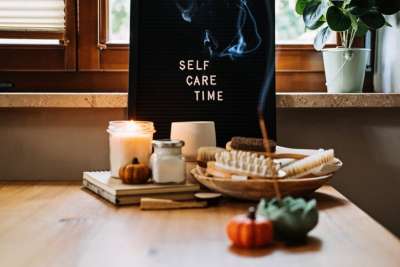Mindfulness and Stress Management
Teacher stress and burnout statistics are a growing concern in the education world. Thankfully, there’s a great tool we can use as teachers to help ourselves get out of the stress response and into a state where we feel calm, focused, and ready to be our best selves both in and out of the classroom. It’s called mindfulness, the practice of paying attention to the present moment with intention.
Practicing mindfulness has many benefits. Among them, it helps to support physical and mental health, increases well-being and self-awareness, lowers stress and anxiety, and helps to develop memory, attention and work-life balance. The key to experiencing these benefits is to be consistent with the practice and to keep it short and doable.
There are hundreds of ways to practice mindfulness and it can feel very overwhelming at first. We recommend that you start incorporating mindfulness and self-care into your day in the following three easy and simple ways.
Focus on your breath.
First, the easiest way to practice mindfulness is to take a few minutes a day to focus on your breath. Take five to ten deep inhales and deep exhales, and when your mind starts wandering to thoughts like your to-do list, simply take notice and refocus on your breathing. At the end of your breaths, ask yourself what you noticed during your mindfulness practice. As teachers ourselves, we love doing this exercise in our cars every day right before stepping into the school building to set ourselves up for a successful day.
Connect with your five senses.
A second way to infuse mindfulness into the day is to take a minute to connect with your five senses. For example, while having your coffee in the morning, take a moment to smell the coffee, look at it, and taste it mindfully. Or, go for a short walk in nature daily and notice what you hear, smell, taste, see and touch. Notice the ground below your feet. Notice how connecting with your five senses makes you feel.
Create a daily mindfulness routine.
A third and most recommended way we would like to offer is to create a daily mindfulness routine in your classroom during the school day so that both you and your students benefit from this research-backed practice. Mindfulness is proven to prepare minds and bodies for effective teaching and learning. You can simply do the above exercises with your students, or you can use guided audio lessons like the ones in Educalme.
Educalme is an evidence-based mindfulness and social-emotional learning program that helps busy K-12 teachers and students thrive in a well-managed, calm, and focused learning environment. We believe self-care shouldn’t be reserved for after-school hours to make up for the burnout you’ve experienced during the school day, flipping the script and making well-being an integral part of your classroom routine for both your students and you. You can learn more about Educalme here: Educalme.com.
Lastly, take a deep inhale. Feel yourself inhaling. Now, exhale. Notice how it feels to exhale.
There you go, you’ve taken the first step (or breath) on your mindfulness journey. May this new simple daily routine bring you a sense of calm and peace both in and out of the classroom.
By Kailey and Josianne | Teachers and Educalme Founders













